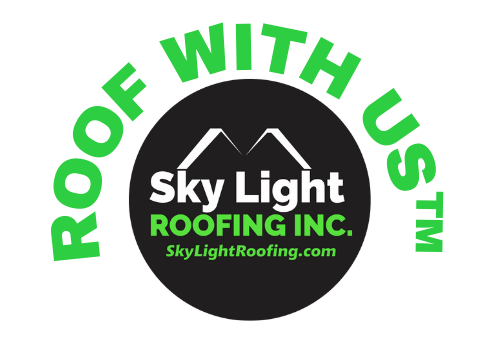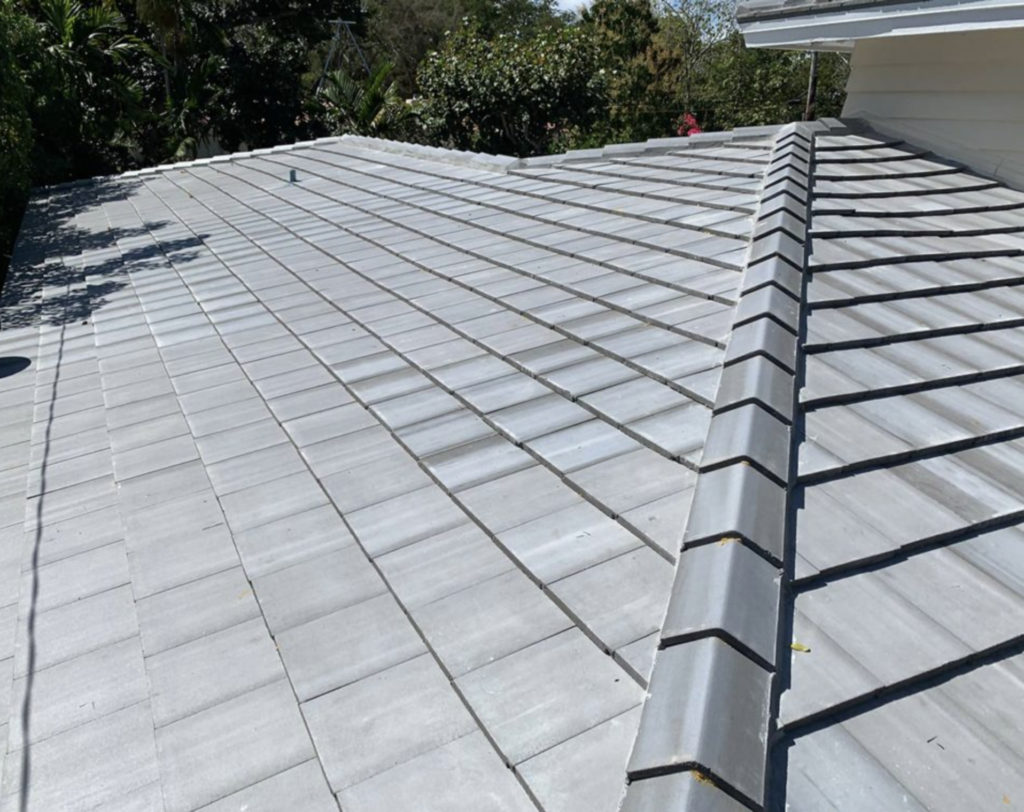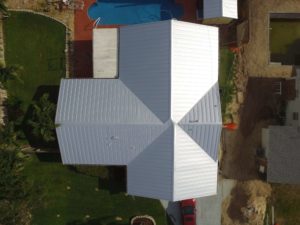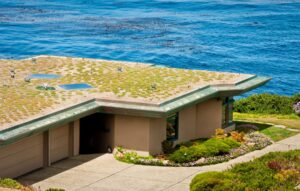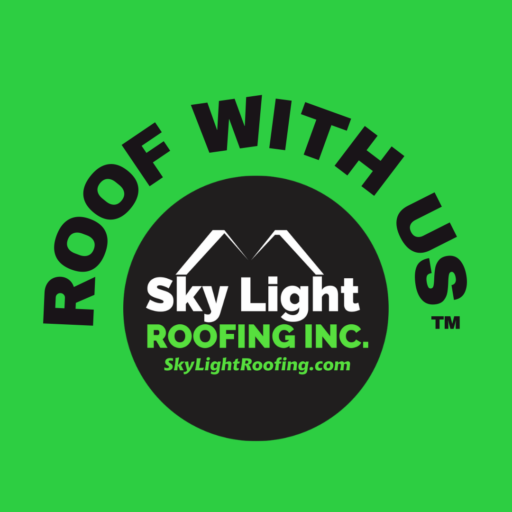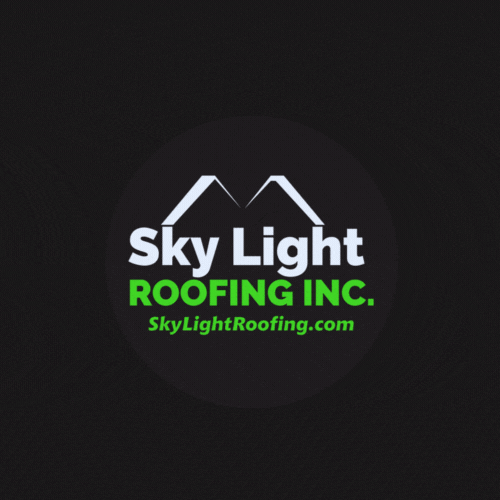Discover 7 Remarkable Types of Roofs on Houses in Florida: A Comprehensive Guide to Residential Roofing
In the radiant, hurricane-prone territory of Central Florida, where climatic conditions often oscillate between balmy warmth and heavy storms, the types of roofs on houses do much more than just provide cover. They serve as protectors, aesthetic highlights, and bold statements. Central Florida’s residential roofing showcases a variety of designs, as homeowners skillfully intertwine aesthetics with the essential demand for durability against the region’s intense weather conditions. From the captivating charm of terracotta tiles echoing Mediterranean villas to the robust beauty of metal roofs, there are plenty of options.
This all-encompassing guide is designed for the discerning homeowner and will guide you through the seven most remarkable types of roofs that adorn and strengthen Florida’s houses. Join us as we delve into the unique characteristics of each, aiding you in making a well-informed decision for your own piece of paradise.
1. Asphalt Shingles: A Common Type of Roof on Houses
Asphalt Shingles, an enduring favorite amongst different types of roofs on houses, hold an esteemed position in Florida’s residential roofing sector. Selected chiefly for their robust character, asphalt shingles span a spectrum of styles and colors, facilitating a level of customization that brilliantly illuminates your home’s unique personality. Adapting aesthetics to align with your home’s architectural style has become remarkably effortless.
These types of roofs on houses secure a clear victory when it comes to blending resilience with cost-effectiveness. Asphalt shingles establish a formidable defense against the elements, steadfastly enduring Florida’s often severe rain and sun. In addition, the plethora of styles on offer empowers homeowners to select a roof that enhances their home’s architecture without straining their finances.
However, like any roofing material, asphalt shingles have their drawbacks. Despite serving as a reliable guardian, their lifespan is generally shorter than other roofing materials, necessitating more frequent replacement. In Florida’s hurricane-prone environment, asphalt shingles may not always hold up, with high winds and airborne debris posing a serious risk of damage. Consequently, homeowners opting for this roofing choice may need to consider the potential for elevated maintenance or repair costs over time
2. Metal Roofs: A Resilient Choice in Residential Roofing
Floridian homeowners who prioritize durability and longevity often lean towards metal roofs, a standout choice amongst the various types of roofs on houses. Engineered to withstand the trials of time, these roofs are an unmistakable emblem of tenacity. Celebrated for their streamlined aesthetic and exceptional robustness, metal roofs have risen as an attractive option for those desiring a lasting roofing resolution.
The merits of these types of roofs on houses are manifold, commencing with their deft resistance to Florida’s challenging climatic conditions. Metal roofs dismiss the intense sunlight, torrential rains, and gusty winds with enviable ease. However, their prowess extends beyond mere weather resistance — they function as a solar reflector, bouncing back the sun’s rays and thereby effectively cutting down the home’s cooling expenses during the torrid summer months. This positions them as a frontrunner in energy efficiency and a trusted partner in moderating your utility expenditure.
Despite the lengthy catalog of advantages, it’s crucial to acknowledge the initial outlay involved in a metal roof installation, which markedly surpasses that of an asphalt alternative. Yet, this initial financial commitment frequently proves its worth over the years. The extraordinary durability and limited maintenance requisites of metal roofs position them as a cost-effective selection in the long haul. Homeowners, though, must be ready for these upfront costs and comprehend that the return on investment matures over an extended duration.
3. Tile Roofs: A Classic Selection for Homes
With their timeless charm and robust durability, tile roofs have become an iconic part of the Florida landscape, especially adorning Spanish or Mediterranean-style homes. Offering a pleasing blend of functionality and aesthetics, these roofs exhibit an old-world elegance that sets them apart. They’re crafted primarily from clay, although you’ll also find them in concrete and slate versions, each offering their unique attributes.
When it comes to durability, tile roofs stand tall and unyielding. Their hardy nature grants them the ability to withstand fire and deter pests, providing homeowners with an additional layer of security. If resilience is what you seek, tile roofs rarely disappoint. They are built to last, lending your home a lasting beauty that grows with the years.
Yet, for all their aesthetic charm and steadfast durability, these types of roofs come with their own set of considerations. For one, their weight is considerably more than other roofing materials, which might necessitate additional structural support for your home. This requirement could potentially increase construction time and costs. Additionally, compared to other roofing materials, tile roofs are a more expensive proposition. However, their exceptional longevity often justifies the initial outlay, making them a worthy investment for homeowners who envision a long-term stay.
4. Flat Roofs: Versatile and Modern Appeal
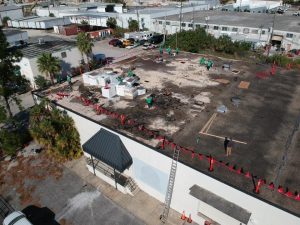 Flat roofs, exuding a sleek, contemporary vibe, are a favored choice for modern homes across Florida. They step away from the traditional pitched roof structure, creating an eye-catching contrast that leans into the avant-garde. With their minimalist aesthetics, flat roofs provide an edgy twist to residential architecture, adding a unique personality to your home.
Flat roofs, exuding a sleek, contemporary vibe, are a favored choice for modern homes across Florida. They step away from the traditional pitched roof structure, creating an eye-catching contrast that leans into the avant-garde. With their minimalist aesthetics, flat roofs provide an edgy twist to residential architecture, adding a unique personality to your home.
One of the primary advantages of flat roofs is their relative ease of installation. This often translates into reduced labor costs and shorter construction times, making them a cost-effective choice for many homeowners. Beyond the economics, flat roofs can serve as functional spaces too. Think rooftop patios, verdant gardens, or even solar panel installations. With a flat roof, the sky quite literally becomes the limit.
However, like every architectural choice, these types of roofs come with certain challenges. Their lifespan is notably shorter than their pitched counterparts, and they demand regular maintenance to remain in optimal condition. The flat design is particularly susceptible to water pooling, which, if not addressed promptly, can lead to leaks and structural damage. Thus, while flat roofs offer unique aesthetic and functional advantages, they also require vigilant care and maintenance to prevent potential issues.
5. Built-Up Roofing (BUR): Trusted Durability
Often referred to as tar-and-gravel roofing, Built-Up Roofing (BUR) stands out in the variety of types of roofs on houses. This unique construction method involves alternating layers of bitumen and reinforcing fabric, which together form a sturdy seal over your home, shielding it from the weather. An ideal pick for flat roofs, BUR’s utilitarian design has earned a place in the hearts of Florida homeowners seeking an economical yet reliable roofing option.
A key advantage of BUR among types of roofs on houses is its blend of cost-effectiveness and endurance. This roofing style is designed to offer superior protection against water infiltration, rendering it an apt selection for Florida’s tropical climate, notorious for its heavy rainfall. The robust construction, paired with its excellent waterproofing capabilities, prolongs the roof’s lifespan, providing homeowners with lasting value.
However, it’s essential to acknowledge that the strength of Built-Up Roofing comes with increased weight. The addition of layers of bitumen and fabric results in a denser roof structure compared to other roofing styles, potentially requiring extra structural support. The necessity for this supplementary reinforcement can add to the total installation cost, a factor that should be considered when selecting a BUR system for your home.
6. Wood Shake Roofs: A Unique Type of Roof on Houses
Wood Shake Roofs, celebrated for their rustic appeal, offer a charming touch of nature to any residential property. A departure from the conventional roofing materials, these roofs are constructed from split logs, imbuing homes with an inviting, organic aesthetic. This unique look has garnered them a substantial following among homeowners who value visual appeal and environmental friendliness.
The allure of Wood Shake Roofs extends beyond their aesthetic. They boast solid insulation properties, making them an energy-efficient choice for Florida homes, as they help to keep the interior temperature stable, thereby reducing cooling costs. Additionally, when correctly maintained, wood shake roofs demonstrate a commendable durability that can withstand Florida’s variable weather conditions.
Nevertheless, while these roofs do offer multiple benefits, there are a few factors homeowners should consider. Wood shake roofs require more maintenance than metal or asphalt counterparts to preserve their durability and visual charm. Moreover, their natural material may pose a risk in fire-prone areas unless adequately treated with a fire-resistant coating. This extra fireproofing measure is important for homeowners considering this natural and rustic roofing option.
7. Green Roofs: Eco-Friendly and Innovative Solution
Among the diverse types of roofs on houses, Green Roofs, or living roofs, stand out as a distinctive and eco-sensitive choice that’s finding favor with environmentally-minded homeowners. This avant-garde approach to residential roofing merges plant life with a waterproof barrier, conjuring a thriving ecosystem atop your abode. Once mainly seen in metropolitan areas as a patch of green amid the grey, Green Roofs are now a burgeoning trend in Florida’s residential landscapes.
A notable draw of green roofs lies in their advantageous impact on the environment. These roofs act as organic insulators, maintaining homes cooler in the balmy summer months and cozier during winter, culminating in appreciable energy cost savings. Moreover, green roofs can decrease stormwater runoff, aid in air decontamination, and even offer sanctuary for local plant and animal species, augmenting biodiversity in city environs.
Despite the extensive list of perks, there are a couple of potential downsides worth acknowledging. Green roofs necessitate meticulous installation and continual care to preserve the plant health and the waterproof membrane’s integrity. This might escalate the overall expenditure and upkeep demands. Furthermore, given the additional load of the flora and soil, green roofs may call for extra structural backing, rendering them less appropriate for some existing homes without sufficient reinforcement.

Selecting the perfect roof for your home in the Sunshine State is a task that involves weighing several variables. Factors such as Florida’s unique weather patterns, the structural strength of your home, cost-effectiveness, aesthetics, maintenance requirements, and the expected lifespan of the material, all play an important role. Notably, local building codes and HOA guidelines in Florida can also influence your choice of roofing material.
Working with a seasoned roofing professional is vital in this process. They can provide the necessary expertise about the strengths and weaknesses of each roofing option, assist you in navigating the local regulations, and ensure a smooth and efficient installation process. For more official information on building regulations in Florida, you can visit this Florida Building Commission page.
Are you prepared to embark on your roofing journey, fostering a home that’s both secure and aesthetically pleasing? Please, don’t hesitate to reach out. As we always say, when you ‘Roof with Us™,’ you’re not just procuring a service, but securing peace of mind. Your satisfaction is our highest aspiration.
